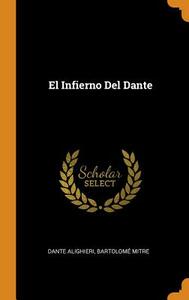You need to sign in or sign up before continuing.
Take a photo of a barcode or cover
challenging
emotional
mysterious
reflective
fast-paced
Plot or Character Driven:
A mix
Strong character development:
Complicated
Loveable characters:
No
Diverse cast of characters:
Complicated
Flaws of characters a main focus:
Yes
challenging
dark
thank goodness the hollander translation has really good annotations i probably would have understood nothing otherwise. things to think about: mercy, paradise lost, just punishment, when your goat is washed. piers the ploughman too wow.
adventurous
challenging
dark
reflective
medium-paced
Plot or Character Driven:
Plot
Strong character development:
No
Loveable characters:
Yes
Diverse cast of characters:
Yes
Flaws of characters a main focus:
Complicated
This review focuses specifically on John Ciardi's translation of Dante's Inferno.
SHORT REVIEW: Inferno is incredible. It is best read alongside the Divine Comedy as a whole. Despite the depth offered by Dante, I did feel like the conclusion of Inferno could have used a bit more work to really drive home the purpose of Dante's journey into Hell. I'd also say that Ciardi's translation is a great entry into the text, but his notes are not as thorough as other translations I've seen.
I'd recommend starting with someone like Ciardi, and then jumping into Hollander's translation for example if you want more info on the context behind the story and a more "authentic" version of the text.
LONG REVIEW:
Inferno is certainly one of the most profound and thought-provoking pieces I have ever read in my lifetime. As a treatise within Western literature, I'd say it's devilishly good. Much like Dante's circles of Hell, the text is a multilayered beast filled with references to mythologies and beliefs have either served as the root of Western literature, or have shaped history since time immemorial. Tribute is made to the ancient Greeks, the Romans, the Abrahamic faiths, and other influences central to Dante's narrations. But given that Dante's commentaries adopt a lens moulded by medieval Christianity, it is inevitable that his depictions border on being controversial, provocative, or heretical, even to the Christian faith.
There are narrations in here that have made me raise my eyebrows a couple of times, and I certainly would exercise caution in treating this story as some kind of historically or religiously accurate piece. It is a work of fiction rife with Dante's own philosophical commentaries and revisions of the Christian version of Hell, the recognition and rejection of human sin, and a political jab at Dante's own society and social spheres at the time. As such, while great acclaim has been afforded for Dante's incredible writing, the level of pettiness that he exudes to write his own personal enemies and rivals as the inhabitants of Hell should not be ignored. At times, it is quite humourous.
If treated as a standalone, the ending of Inferno does deserve some heavy nitpicking. Rather than offer some conclusive commentary on the journey through Hell, the ending just moves on to the next sequence (Purgatario) without much to show for Dante having endured this perilous journey. Some much-needed reflection would have benefitted the story here, given how easy it is for readers to perceive the Inferno as a story of its own when it is actually a Part One of Three.
For a book that is so rich in depth, it is a wonder that the text still remains accessible. It seems that the average reader is able to enjoy it as much as the scholar while extracting completely different interpretations of the text. I can see why academics get so nerdy about Dante. For a book that is barely 300 pages, it makes every word count.
SHORT REVIEW: Inferno is incredible. It is best read alongside the Divine Comedy as a whole. Despite the depth offered by Dante, I did feel like the conclusion of Inferno could have used a bit more work to really drive home the purpose of Dante's journey into Hell. I'd also say that Ciardi's translation is a great entry into the text, but his notes are not as thorough as other translations I've seen.
I'd recommend starting with someone like Ciardi, and then jumping into Hollander's translation for example if you want more info on the context behind the story and a more "authentic" version of the text.
LONG REVIEW:
Inferno is certainly one of the most profound and thought-provoking pieces I have ever read in my lifetime. As a treatise within Western literature, I'd say it's devilishly good. Much like Dante's circles of Hell, the text is a multilayered beast filled with references to mythologies and beliefs have either served as the root of Western literature, or have shaped history since time immemorial. Tribute is made to the ancient Greeks, the Romans, the Abrahamic faiths, and other influences central to Dante's narrations. But given that Dante's commentaries adopt a lens moulded by medieval Christianity, it is inevitable that his depictions border on being controversial, provocative, or heretical, even to the Christian faith.
There are narrations in here that have made me raise my eyebrows a couple of times, and I certainly would exercise caution in treating this story as some kind of historically or religiously accurate piece. It is a work of fiction rife with Dante's own philosophical commentaries and revisions of the Christian version of Hell, the recognition and rejection of human sin, and a political jab at Dante's own society and social spheres at the time. As such, while great acclaim has been afforded for Dante's incredible writing, the level of pettiness that he exudes to write his own personal enemies and rivals as the inhabitants of Hell should not be ignored. At times, it is quite humourous.
If treated as a standalone, the ending of Inferno does deserve some heavy nitpicking. Rather than offer some conclusive commentary on the journey through Hell, the ending just moves on to the next sequence (Purgatario) without much to show for Dante having endured this perilous journey. Some much-needed reflection would have benefitted the story here, given how easy it is for readers to perceive the Inferno as a story of its own when it is actually a Part One of Three.
For a book that is so rich in depth, it is a wonder that the text still remains accessible. It seems that the average reader is able to enjoy it as much as the scholar while extracting completely different interpretations of the text. I can see why academics get so nerdy about Dante. For a book that is barely 300 pages, it makes every word count.
Me costó mucho terminar este libro. Tuve que leer varias veces la misma página para captar lo que decía
challenging
dark
informative
tense
medium-paced
Flaws of characters a main focus:
Yes
slow-paced
challenging
slow-paced
Plot or Character Driven:
Plot
Strong character development:
No
Loveable characters:
No
Diverse cast of characters:
No
Flaws of characters a main focus:
Complicated
fast-paced








